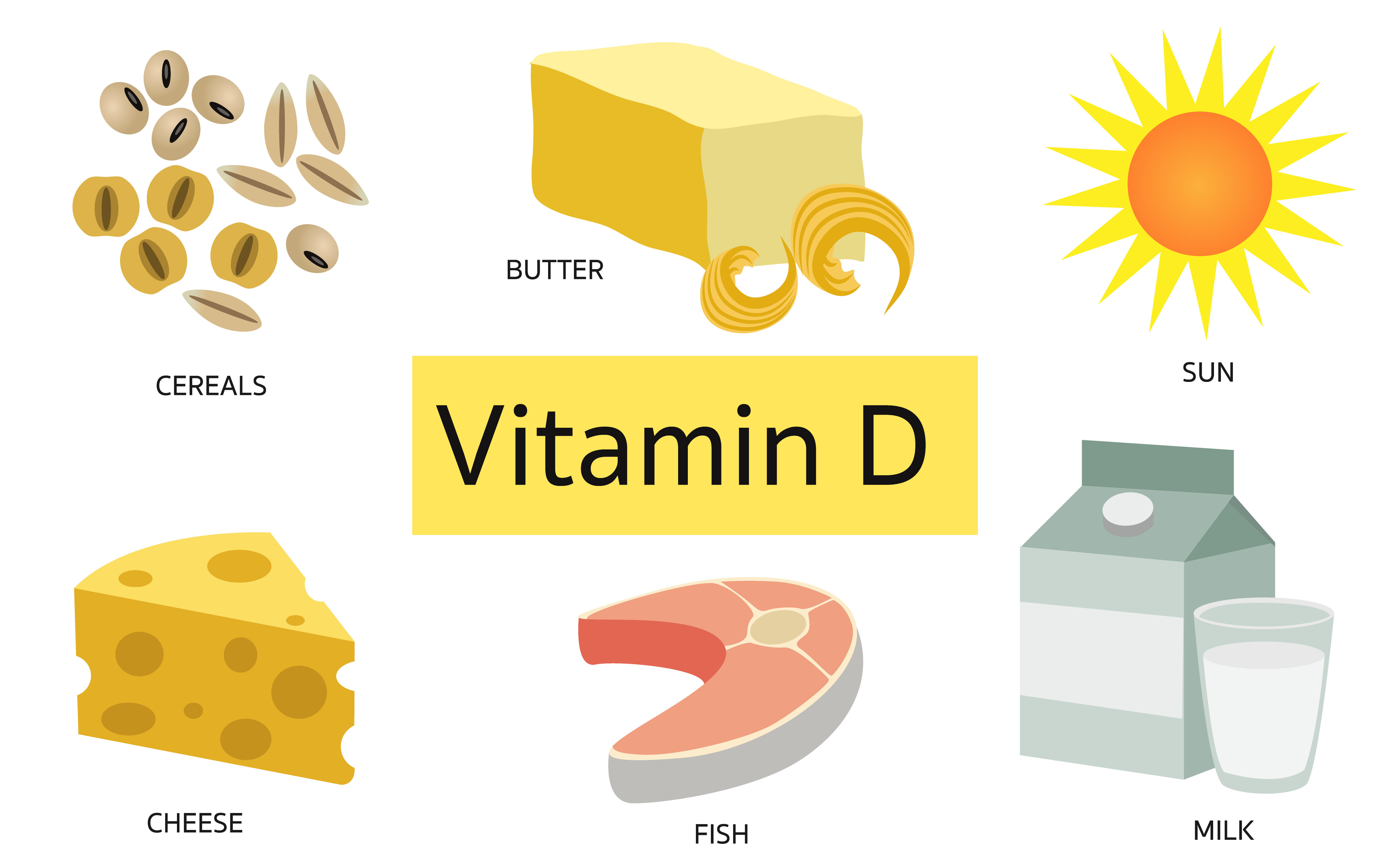Think about vitamin D when you catch the sun's rays. Sometimes it is called the sunny vitamin, because it is produced in the skin in response to the sun's rays. Vitamin D is fat-soluble and belongs to a family that includes vitamins D-1, D-2 and D-3. It can affect up to 2,000 genes in the body.
Vitamin D origin
The body produces vitamin D naturally when it is directly exposed to sunlight. In addition to taking vitamin D from the sun, we can also find it in certain foods and supplements to ensure adequate levels of this vitamin in the blood.
Vitamin D functions
Vitamin D has several important functions. Probably the most important function is to regulate the absorption of calcium and phosphorus and support the function of the immune system. A sufficient dose of vitamin D is important for the normal growth and development of bones and teeth and for improving immunity to certain diseases.
If your body does not get enough vitamin D, you are at risk for developing bone abnormalities, such as soft bones (osteomalacia) or breakable bones(osteoporosis).
Studies show that vitamin D can play an important role in mood regulation or prevention of depression. In one study, the researchers found that people with depression who received vitamin D supplements had a significant improvement.

In another study on people with fibromyalgia, researchers found that vitamin D deficiency was more common in people who also experienced anxiety and depression.
Consider adding a vitamin D supplement to your diet if you are trying to lose weight or prevent heart disease.
In one study, people who took a supplement with vitamin D every day did not lose a significant amount of kilograms, but the markers of heart disease risk improved.
In another study, people taking a daily supplement with calcium and vitamin D were able to lose weight more than participants taking a placebo. The researchers noticed that an additional dose of calcium and vitamin D would suppress the appetite.
Vitamin D deficiency
The doctor can diagnose a vitamin D deficiency by doing a simple blood test. If the result is positive, your doctor may recommend an X-ray to check your bone condition.
If you have been diagnosed with a vitamin D deficiency, your doctor will probably recommend supplements with vitamin D. If the shortages are significant, you may be advised to take tablets with a high dose of vitamin D or lotions. Also make sure that you provide vitamin D through exposure to the sun and in your diet.






